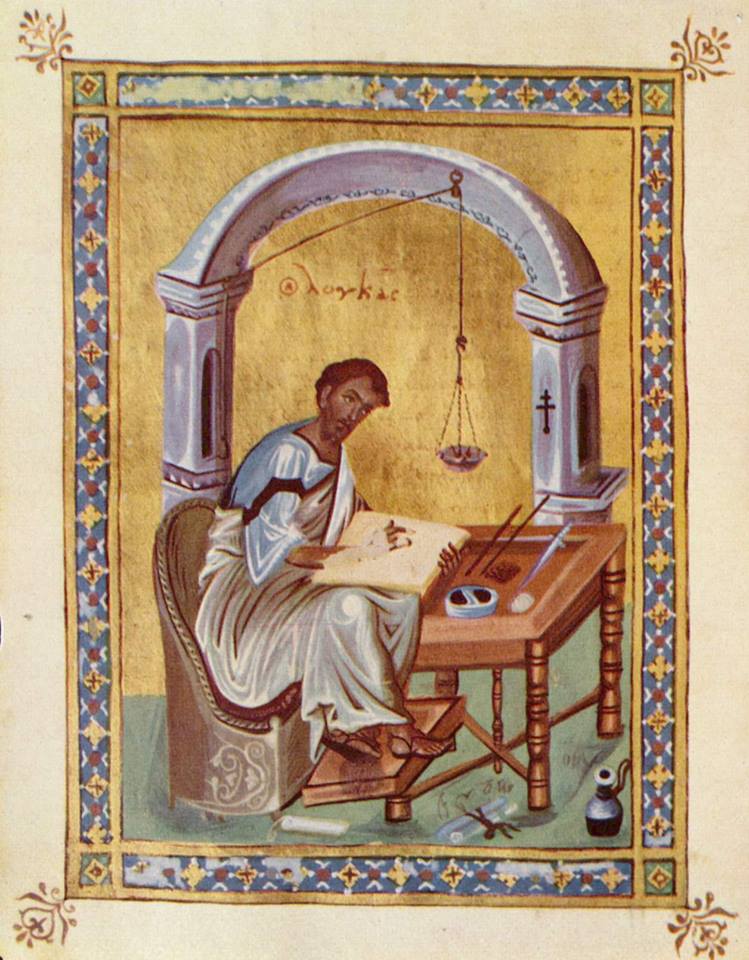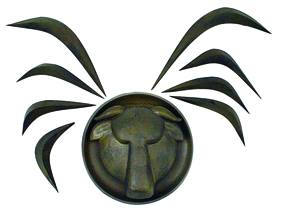
After this the Lord appointed seventy-two others and sent them on ahead of him, two by two, into every town and place where he himself was about to go. And he said to them, “The harvest is plentiful, but the laborers are few. Therefore pray earnestly to the Lord of the harvest to send out laborers into his harvest. Go your way; behold, I am sending you out as lambs in the midst of wolves. Carry no moneybag, no knapsack, no sandals, and greet no one on the road. Whatever house you enter, first say, ‘Peace be to this house!’ And if a son of peace is there, your peace will rest upon him. But if not, it will return to you. And remain in the same house, eating and drinking what they provide, for the laborer deserves his wages. Do not go from house to house. Whenever you enter a town and they receive you, eat what is set before you. Heal the sick in it and say to them, ‘The kingdom of God has come near to you.’
Luke 10:1-9
Tradition claims that St. Luke was one of these 72 sent out by Jesus. He also wrote the Gospel of Luke and the book of Acts. He was a physician (“Luke the beloved physician greets you, as does Demas” from Colossians 4:14), and wrote both books with the eye of a scientific man, diligently recording the history of Christ’s time on earth from birth to death to resurrection and finally ascension, then following that up with the activities of the early Church. He traveled with St. Paul on his missionary journeys, faithfully following him into the suffering Christ called him to. From Paul’s second letter to Timothy:
As for you, always be sober-minded, endure suffering, do the work of an evangelist, fulfill your ministry.
For I am already being poured out as a drink offering, and the time of my departure has come. I have fought the good fight, I have finished the race, I have kept the faith. Henceforth there is laid up for me the crown of righteousness, which the Lord, the righteous judge, will award to me on that day, and not only to me but also to all who have loved his appearing.
Do your best to come to me soon. For Demas, in love with this present world, has deserted me and gone to Thessalonica. Crescens has gone to Galatia, Titus to Dalmatia. Luke alone is with me. Get Mark and bring him with you, for he is very useful to me for ministry.
2 Timothy 4:5-11
 This is a photo of St. Luke’s Gospel shield, one of the New Testament Evangelist Shields which hang in Wyneken Hall. The winged ox is the symbol of highest sacrifice, chosen centuries ago to represent the Gospel of Luke because of his detailed accounts of the Lord’s sacrificial work.
This is a photo of St. Luke’s Gospel shield, one of the New Testament Evangelist Shields which hang in Wyneken Hall. The winged ox is the symbol of highest sacrifice, chosen centuries ago to represent the Gospel of Luke because of his detailed accounts of the Lord’s sacrificial work.
